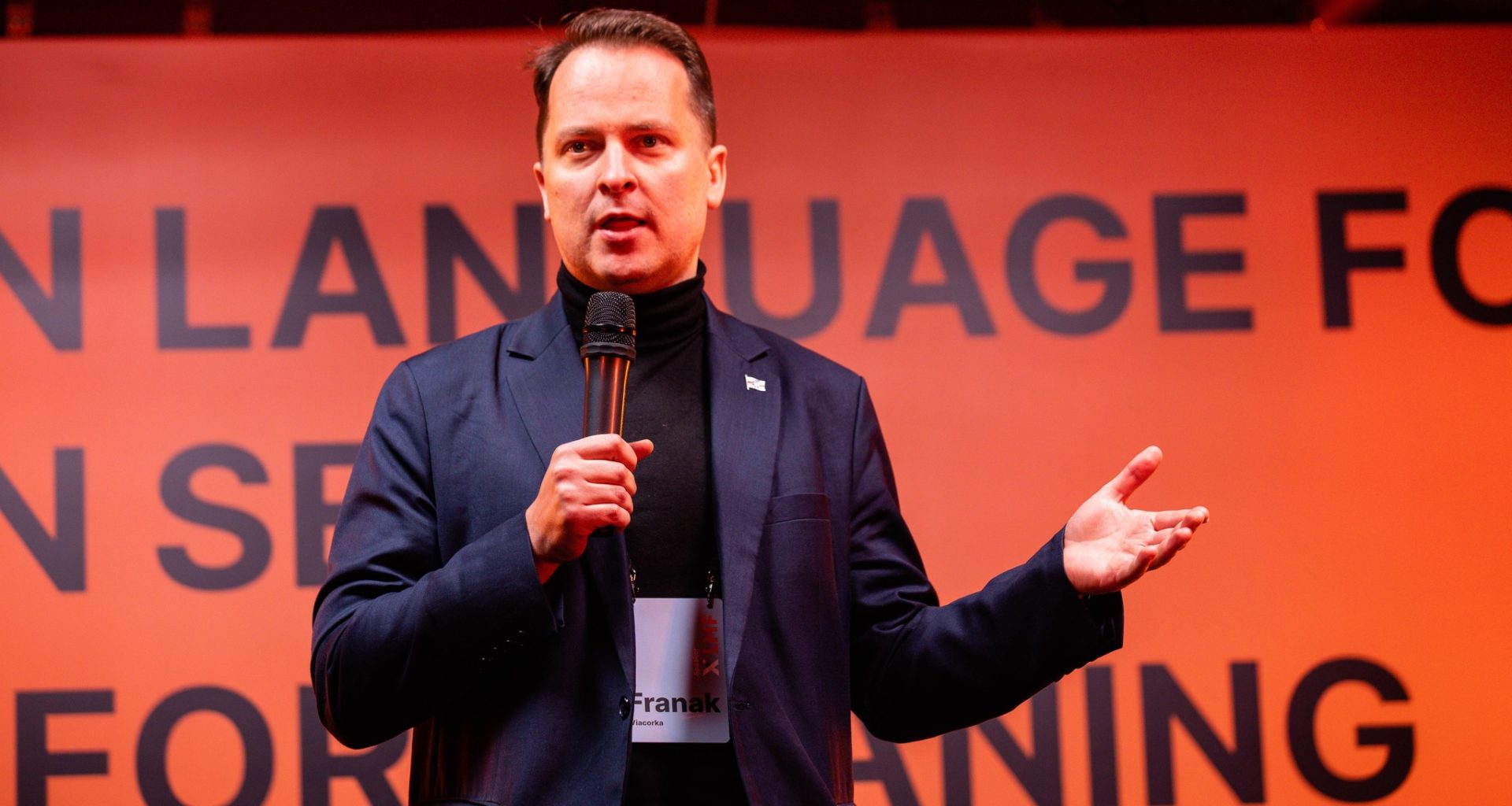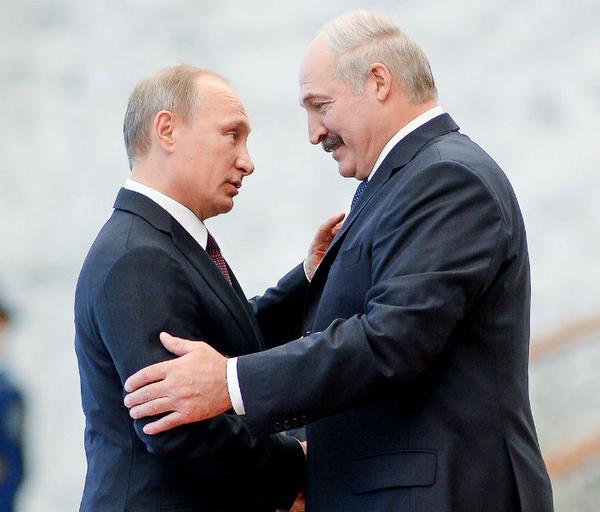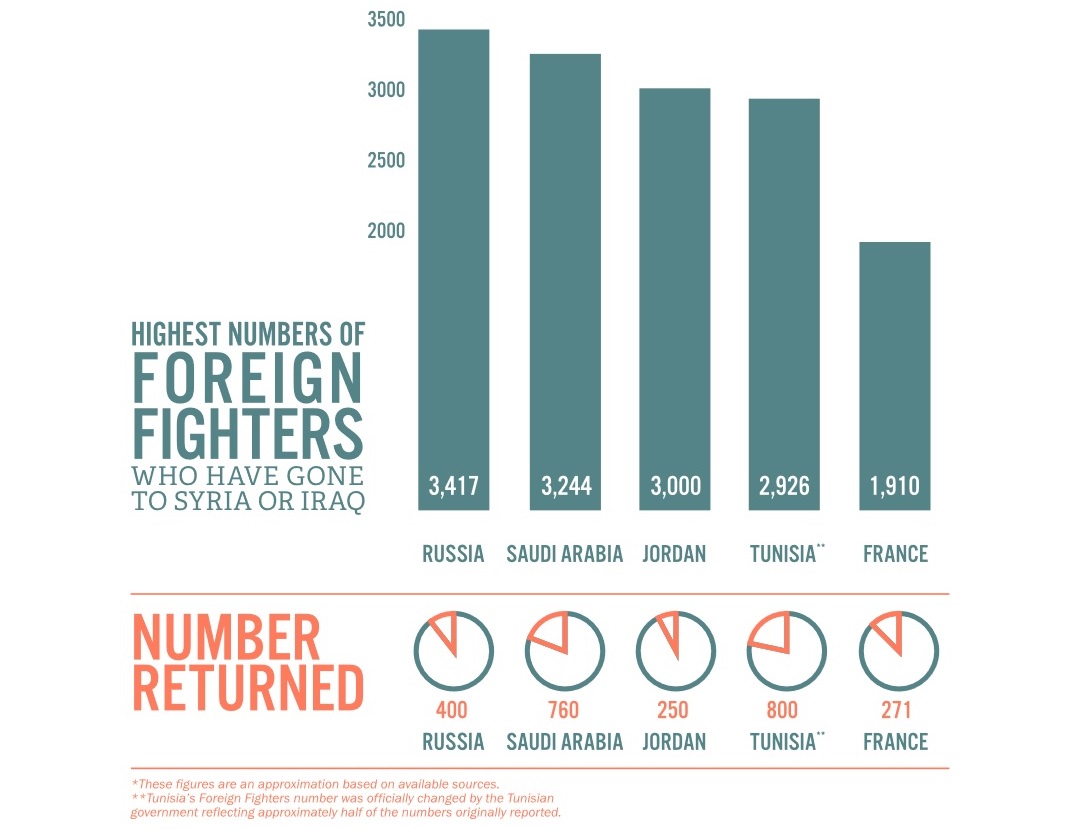Franak Viačorka, a senior advisor to Belarusian 2020 President-elect in exile Sviatlana Tsikhanouskaya, shared his experience of current fight against Lukashenka’s regime in Belarus, speaking in an exclusive interview on the sidewalks of 10th Lviv Media Forum.
As Belarus remains under Lukashenka's grip, the opposition employs a strategy of a thousand cuts, sabotage, and cyber warfare to weaken the regime from within and inspire a new wave of resistance, Viačorka said. He also believes the West fails to understand the importance of national identity, which Russia aims to destroy in order to control conquered peoples and use their human and natural resources for its further expansion.
Viačorka became internationally known during the 2020 Belarusian protests against rigged elections. Despite brutal police violence, arrests, and torture of thousands of protesters, Belarusians maintained solely peaceful, non-violent methods of protest. After their demands for fair elections were rejected and Lukashenka proclaimed himself the President, his main challenger and, as widely perceived, the actual winner of the elections, Sviatlana Tsikhanouskaya, was forced to flee Belarus. Many other socially and politically active Belarusians also had to emigrate to avoid prison.
Still, Belarusians don't perceive the revolution as failed but rather unfinished, believing further struggle will eventually free Belarus from Russian control and Lukashenka's dictatorship and make it a democracy within the EU.
B.B.: I want to start with a general question about the 2020 revolution. How do Belarusians view it today? Do they think they should have acted more radically to win and overthrow the regime? To oust dictator Lukashenka from Belarus as Ukrainians did with Yanukovych in 2014, resisting unlawful police violence with Molotov cocktails and batons?
F.V.: I don't think it was a mistake. I think it was a natural process for which society was prepared. It was a spark of people's energy. People were outraged with the regime, especially when it failed to protect them from COVID. After 2020, there is no feeling that we failed completely. There is a feeling of an unfinished revolution.
Now, it is put on pause, but any other window of opportunity will continue this revolution, perhaps not in the same form of street rallies as it was. Maybe it will be connected to a split of elites and processes inside the nomenklatura, part of which is also very unhappy with the regime. We still have hope to finish what we started back in 2020.
Belarus has a much more restricted environment than Ukraine. Ukraine had independent media, more freedom, oppositional MPs. In Belarus, we had 30 years of dictatorship.
Regarding the style of the revolution, Belarus has a much more restricted environment than Ukraine. Ukraine had independent media. Ukraine had more freedom. It had its own [oppositional] MPs in the Parliament. In Belarus, we didn't have that. We had 30 years of dictatorship.
We also built barricades, people resisted police, and the KGB tried to defend themselves. But Lukashenka's forces were much more prepared to fight than Yanukovych's forces. Yanukovych's rule cannot be compared to Lukashenka's, who is much tougher and much more prepared to face protests than Yanukovych was in 2014.

B.B.: Do you know how many people are currently held in Belarusian prisons four years after the protests?
F.V.: We know that up to 70,000 have been detained by police since 2020. We know the names of 1,500 people who are recognized as political prisoners. But we think that the actual number [of those currently held in prisons] is about 4,000-5,000 because people don't want to be recognized as political prisoners. If you are, you will be isolated and tortured, and you have to wear a yellow label on your prison clothing, which means that you're political. Many families asked, "Please don't reveal the names of our beloved ones who are behind bars."
Also, 1,600 were already released because their terms of imprisonment ended. They are in very poor condition and need rehabilitation and treatment. Many people died in prisons. Every month, someone is dying there because they are not provided with medical help.
The situation is drastic and difficult. Lukashenka doesn't care about people's lives. Of course, it cannot be compared to the thousands of victims of Russia's war against Ukraine. The scale of the tragedy is different, but the nature of this violence by Putin and Lukashenka towards people is the same.
B.B.: From a Ukrainian perspective, it seems nowadays is a good time for Belarusians to rise up again, as Russia doesn't have any reserves to intervene in Belarus. On the contrary, you have even experienced fighters here in Ukraine who participated in the war on the Ukrainian side, like the Kastuś Kalinoŭski Regiment. Do you have any talks or discussions on this matter, or do you stick to the agenda of solely peaceful protest?
F.V.: "Peaceful or non-peaceful" is a false dilemma. If we speak about non-peaceful resistance, we're talking about armed resistance, but where will people get arms? Will these people be able to confront dozens of thousands of Lukashenka's heavily armed thugs and hundreds of thousands of Russian soldiers?
The only possible way to resist right now is underground, through sabotage, through small partisan activities. Armed resistance is just impossible to organize. Those who are saying this are very far from reality. We are living in Stalin-style terror. Because of surveillance and cameras everywhere, it's impossible to gather people even for five minutes on the streets right now.
The only possible way to resist right now is underground, through sabotage. Armed resistance is impossible to organize.
If you are walking in a subway station, they are checking everyone's mobile phones. So, at this particular moment, it's not a good time for mass rallies. It's much more efficient to go and do things underground by weakening the regime from the inside. I call it the strategy of a thousand cuts. When you make many small cuts to different parts of the system to show its full vulnerability, put pressure through sanctions, and destroy Lukashenka's image, this is much more efficient right now.
But there will definitely be a moment which we must be ready to use. It can be connected to the success of Ukraine, or it can be connected to internal dynamics. It's not today. Perhaps it will not happen tomorrow. Perhaps it will happen next year because we see that the system is weakening, step by step. And when this moment comes, we will definitely use it.

B.B.: How motivated are Lukashenka's siloviki to fight for the regime and suppress protests? You mentioned previously that many of them are leaking data, etc. To what extent are they capable and motivated to support the regime? And a related question: do they mostly consider themselves Belarusians, or are many of them Russians, as was the case with many loyal to Yanukovych people in Ukraine back in 2014?
F.V.: There are very different groups inside the nomenklatura and power vertical. Many officials are just ordinary technocrats. They don't support the regime. They don't support Lukashenka. They don't understand why they should fight for Russia, why they should be isolated from the world right now because of crazy Lukashenka.
But there are groups like the KGB, like Group Warpik, the Security Apparatus of Lukashenka, which are not big but empowered. They have unlimited power for repression right now. They are very loyal and very well-paid. We can speak about 10,000 or 15,000 siloviki who are very loyal. Lukashenka relies primarily on them.
The armed forces are not completely loyal to Lukashenka. We have evidence that in 2022, many of them refused to participate in the war and did all they could to prevent the participation of the Belarusian army. Lukashenka did not manage to convince the Belarusian army. The Belarusian army is much more connected to the people than the police and KGB, who are very loyal to Lukashenka, Russia, and Putin.
Trending Now
Lukashenka relies primarily on 10,000 or 15,000 very loyal siloviki. The army is not completely loyal.
Our goal right now is to find allies within this technocratic part of the nomenklatura, within the armed forces, and within broader society, of course.
Society is now in a very passive mode, I would say survival mode. First of all, it is because they are scared, and it's a natural reaction to the situation. In contrast to Ukraine, where the government is together with the people, in Belarus, those who call themselves the government are against the people. People don't feel enough support to be brave. And they don't feel enough support from the outside world either. Because of that, the fear is paralyzing. It prevents many people from active participation in political life.
Of course, hundreds of thousands are still part of the active underground resistance and are risking their lives to make a change. But arrests among them are huge. Every single day, 15-20 people are being arrested. Unfortunately, we, as democratic forces, cannot guarantee them safety and support during detention. We cannot even provide them with lawyers because most of the lawyers who supported political prisoners are in prisons themselves.
Every day 15-20 people are being arrested.

B.B.: What about the state of Belarusian culture and, in particular, contemporary Belarusian culture? Again, speaking from the Ukrainian perspective, it was very important that lots of musicians, new bands, and literature writers emerged, who were very modern, not representing the Soviet style or ideology. This new wave of art and culture helped people remember that they are Ukrainians and are now capable of fighting. Many musicians switched from Russian to Ukrainian and are now fighting. It also motivates people from the East of Ukraine who were Russified in the USSR but consider themselves Ukrainians. How is this in Belarus? Are there any modern artists, how many of them and how popular are they?
F.V.: The 2020 revolution and the full-scale invasion of Ukraine sparked national identity's rise. Many people in Belarus started to be interested in the Belarusian language and switched to it as a form of protest.
When you speak Belarusian, you risk a lot, but this is how you show your stance that you are not with Russians and don't want to be connected to Putinist ideas and Lukashenka's tyranny. Many musicians, authors, artists, and painters protested in 2020, and many of them were imprisoned. Many of them are in exile, too, and even in exile, they continue to create masterpieces about revolution and resistance.
Many songs are in support of Ukraine — the interconnection between Belarus and Ukraine is very strong among Belarusian people of culture.
Few people in Europe understand the importance of national identity... Speaking Belarusian becomes too risky. Lukashenka's regime eliminates the language from public space and changes to Russian.
Right now among Westerners there is no understanding that what Russia is doing in Ukraine, it is doing in the whole region but in different forms. In Ukraine it fights with shells and tanks, in Belarus it fights with information propaganda, economic and political subjugation.
Unfortunately, not many people in Europe understand the importance of national identity. Five years ago, when we approached different international foundations asking them to support the Belarusian language and invest in Belarusian culture, they said, "Oh, it's too nationalist; we don't support nationalist ideas." Now, they understand it's important to strengthen national identity, but five years ago, when we asked, they were ignorant of this idea.
The international community also made a huge mistake by not supporting Ukraine and Belarus in shaping and strengthening their national identity, which basically opened the door to Putin with his toxic Russian world.
What's very dangerous in the long run is that last year was the first year in 20 years when more students from Belarus went to study in Russia than to the European Union. In the long run, we will get these Russian-thinking people. It is necessary to explain to politicians in the West why it is very important to drag Belarus out of the Russian orbit and invest in internships for Belarusian students. Otherwise, we will deal for many years ahead with brainwashed people after their study in Russia.
B.B.: Do you know the percentage of people who spoke Belarusian ten years ago and now, and how it has changed?
It's more thanks to the Internet, primarily because people can learn the Belarusian language and speak it freely on the Internet.
However, speaking Belarusian on the streets of Belarus right now becomes too risky. Lukashenka's regime has eliminated the language from public space, so you can't easily buy books in Belarusian, no films are broadcast in Belarusian, and street signs are changed to Russian. Many people who speak and use Belarusian online turn to Russian in their everyday lives to be safe.
Read also:
- Russia faces fuel shortage due to refinery strikes, is being helped by Belarus
- Lukashenka: 120,000 Ukrainian troops protect the border from Belarus, and it is “inaccessible”
- Poland allows sanctioned Belarusian timber into EU with forged documents, according to investigation
- Research: Thousands of Ukrainian children abducted to Belarus





